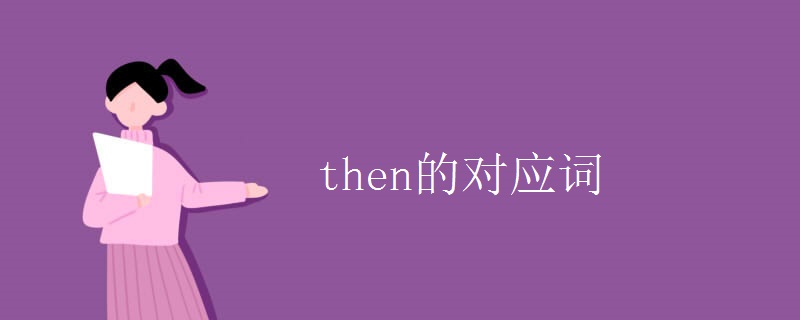-
-
Now。对应词是不同语言间可以对译的词,then的意思是(指过去)当时、那时;(指将来)到那时、届时;然后;接着;其后;后来;那么;因此;既然如此。now的意思是现在;目前;此刻;从现在开始。

then的用法
用作副词,表示“那时”,可用于过去或将来。如:
He was in Paris then. 那时他在巴黎。
注:有时可用于某些介词后。如:
He will have left by then. 到那时他就会已经离开了。
表示“然后”、“接着”,通常与连词 and 连用。如:
Let’s go for a drink and then go home. 我们先去喝一杯,然后再回家。
注:在口语中有时可不用连词 and 而只用 then。
另外,有时位于句首,其后用倒装句。如:
Then came the day of his exam. 接着他考试的那一天到了。
表示“那么”、“既然是那样”、“这么说来”,通常用于句首或句末。如:
You say you don’t want to be a teacher. Then what do youwant to be? 你说你不想当老师,那么你想干什么呢?
注:有时与条件或时间状语从句搭配使用。如:
If it’s not on the table, then it will be in the drawer. 要是不在桌上,那就是抽屉里。